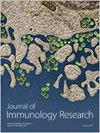提高下一代 COVID-19 疫苗免疫原性的关键在于加入 SARS-CoV-2 核壳蛋白
IF 3.6
3区 医学
Q2 IMMUNOLOGY
引用次数: 0
摘要
接种疫苗是预防冠状病毒病(COVID-19)等传染病最有效的预防性公共卫生干预措施之一。考虑到目前对新的 COVID-19 疫苗的需求,关键是要改变我们的方法,将严重急性呼吸系统综合征冠状病毒 2(SARS-CoV-2)的更多保守区域纳入其中,以有效应对新出现的病毒变种。核壳蛋白是 SARS-CoV-2 的结构蛋白,参与复制和免疫反应。此外,由于核壳蛋白随着时间的推移变异积累极少,而且包含对 SARS-CoV-2 免疫至关重要的关键 T 细胞表位,因此具有显著的优势。一种可能适用于新一代 COVID-19 疫苗的新策略是使用多种抗原组合,包括尖头蛋白和核壳蛋白,以引起强大的体液免疫反应和有效的细胞免疫反应,以及持久的免疫力。战略性地使用多种抗原旨在提高疫苗的效力,扩大对病毒(包括其变种)的保护范围。针对其他冠状病毒核壳蛋白的免疫反应是持久的,可在感染后持续 11 年之久。因此,将核壳蛋白(N)纳入疫苗设计为疫苗接种工作增添了一个重要方面,并有望增强有效抗击 COVID-19 的能力。在这篇综述中,我们总结了评估使用核头壳蛋白作为抗原的临床前研究。本研究讨论了单独使用核头蛋白以及将其与尖峰蛋白或 SARS-CoV-2 的其他蛋白结合使用的情况。本文章由计算机程序翻译,如有差异,请以英文原文为准。
The Key to Increase Immunogenicity of Next-Generation COVID-19 Vaccines Lies in the Inclusion of the SARS-CoV-2 Nucleocapsid Protein
Vaccination is one of the most effective prophylactic public health interventions for the prevention of infectious diseases such as coronavirus disease (COVID-19). Considering the ongoing need for new COVID-19 vaccines, it is crucial to modify our approach and incorporate more conserved regions of severe acute respiratory syndrome coronavirus 2 (SARS-CoV-2) to effectively address emerging viral variants. The nucleocapsid protein is a structural protein of SARS-CoV-2 that is involved in replication and immune responses. Furthermore, this protein offers significant advantages owing to the minimal accumulation of mutations over time and the inclusion of key T-cell epitopes critical for SARS-CoV-2 immunity. A novel strategy that may be suitable for the new generation of vaccines against COVID-19 is to use a combination of antigens, including the spike and nucleocapsid proteins, to elicit robust humoral and potent cellular immune responses, along with long-lasting immunity. The strategic use of multiple antigens aims to enhance vaccine efficacy and broaden protection against viruses, including their variants. The immune response against the nucleocapsid protein from other coronavirus is long-lasting, and it can persist up to 11 years post-infection. Thus, the incorporation of nucleocapsids (N) into vaccine design adds an important dimension to vaccination efforts and holds promise for bolstering the ability to combat COVID-19 effectively. In this review, we summarize the preclinical studies that evaluated the use of the nucleocapsid protein as antigen. This study discusses the use of nucleocapsid alone and its combination with spike protein or other proteins of SARS-CoV-2.
求助全文
通过发布文献求助,成功后即可免费获取论文全文。
去求助
来源期刊

Journal of Immunology Research
IMMUNOLOGY-
CiteScore
6.90
自引率
2.40%
发文量
423
审稿时长
15 weeks
期刊介绍:
Journal of Immunology Research is a peer-reviewed, Open Access journal that provides a platform for scientists and clinicians working in different areas of immunology and therapy. The journal publishes research articles, review articles, as well as clinical studies related to classical immunology, molecular immunology, clinical immunology, cancer immunology, transplantation immunology, immune pathology, immunodeficiency, autoimmune diseases, immune disorders, and immunotherapy.
 求助内容:
求助内容: 应助结果提醒方式:
应助结果提醒方式:


